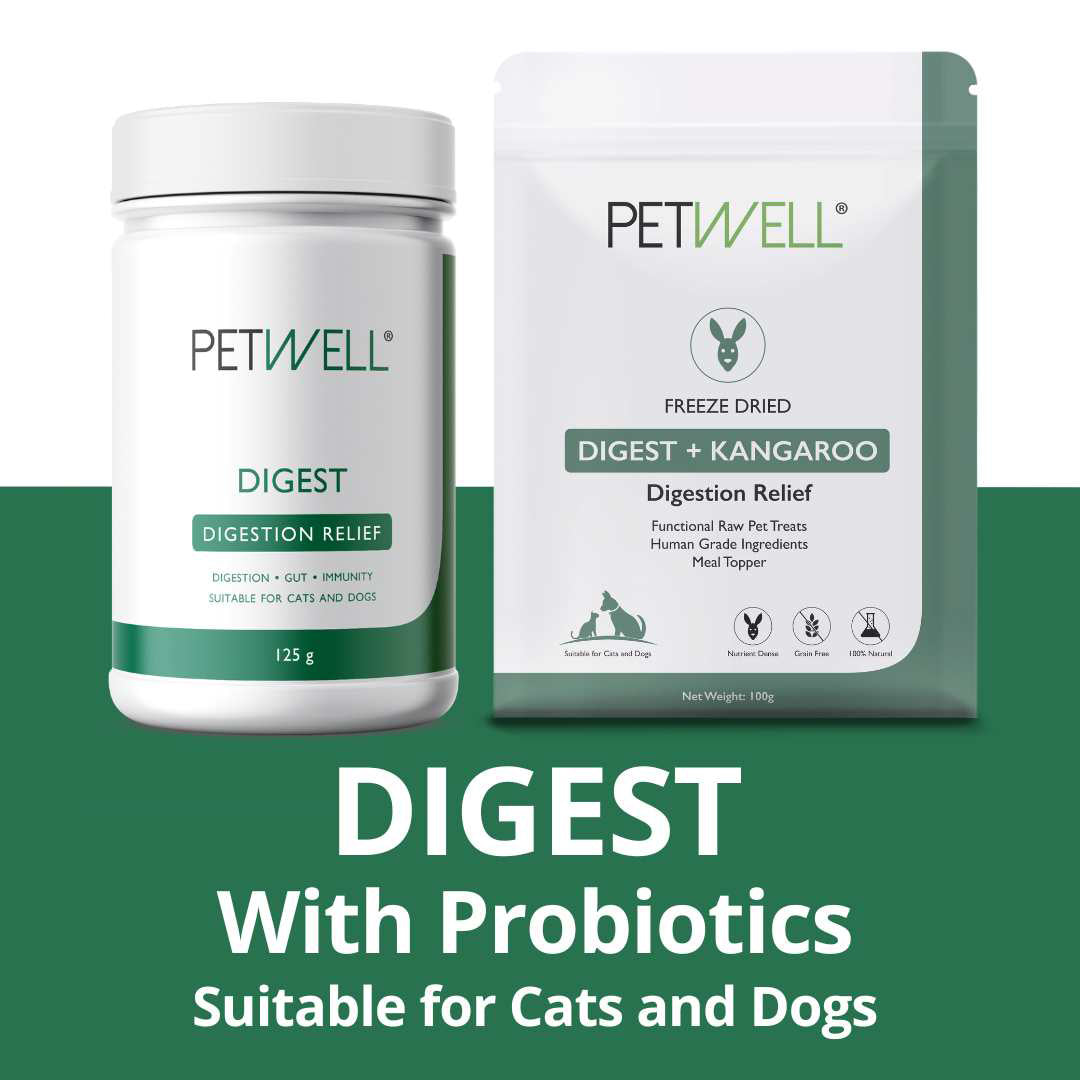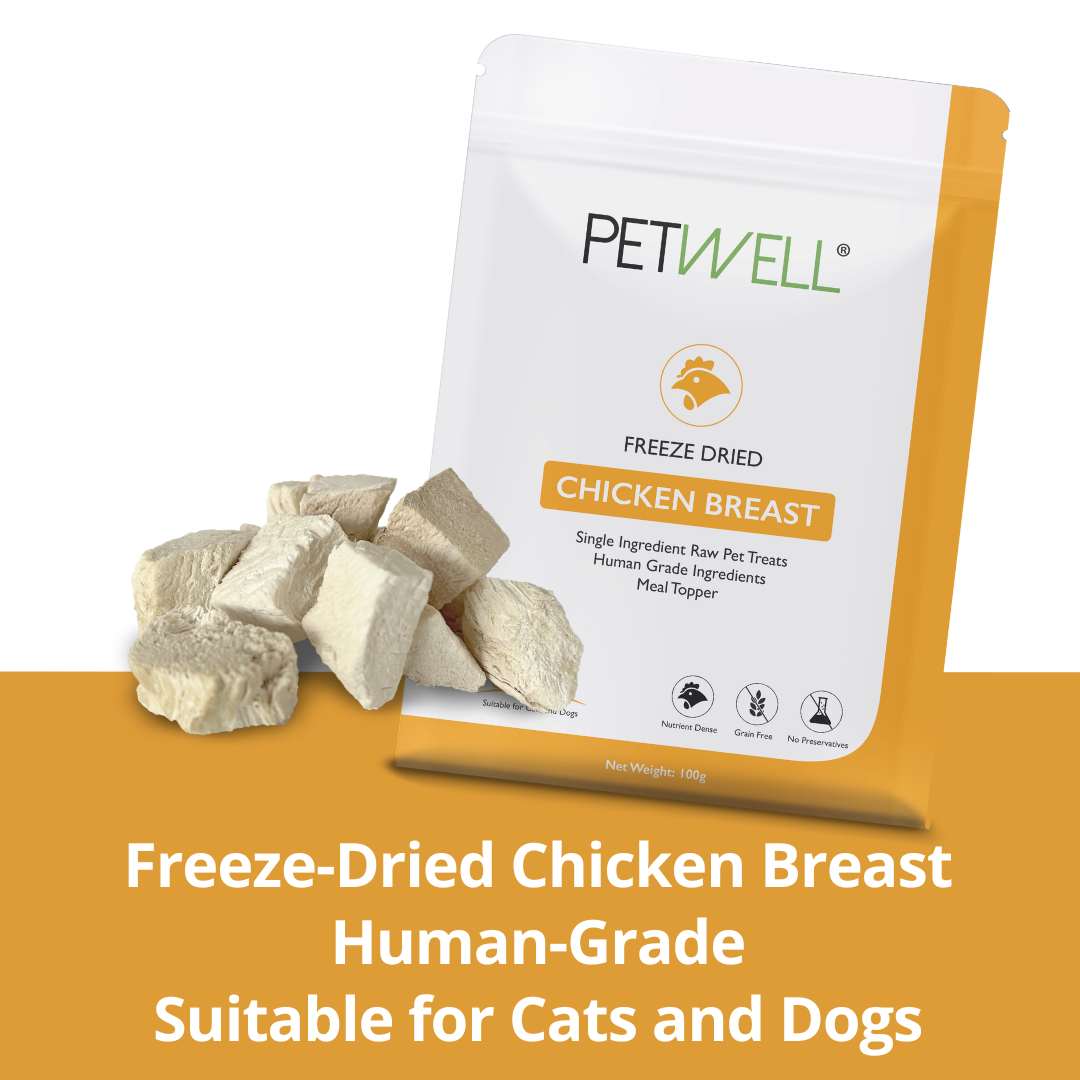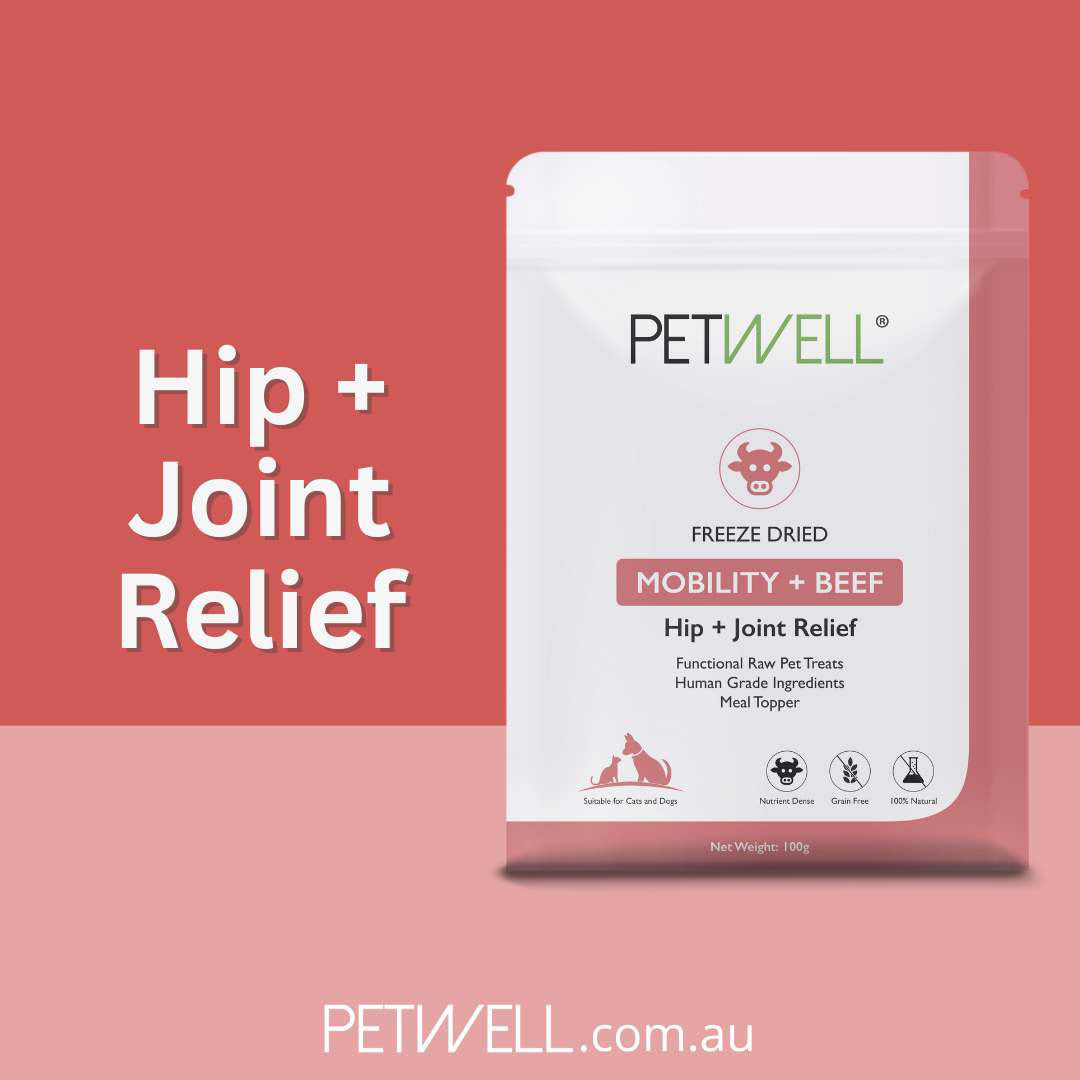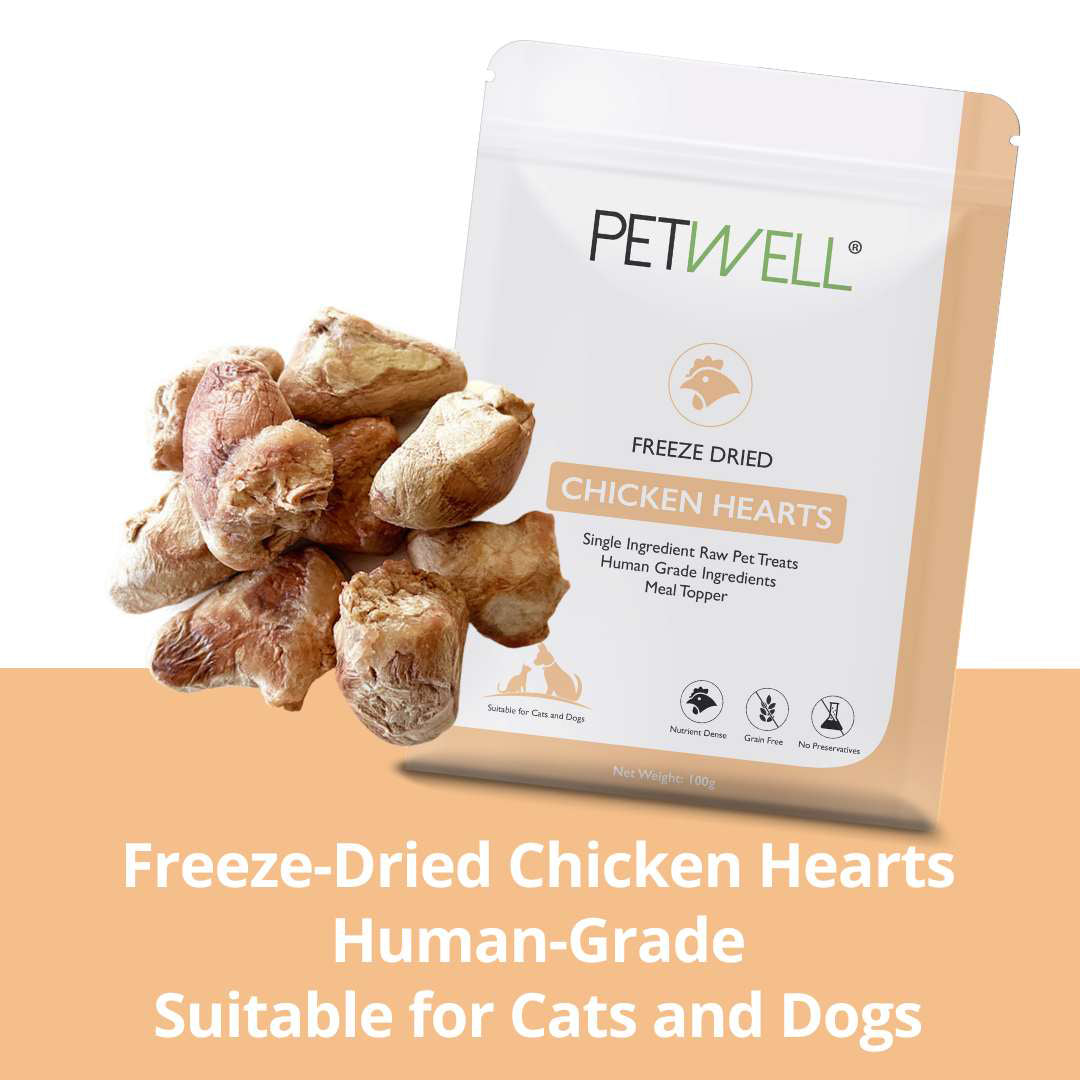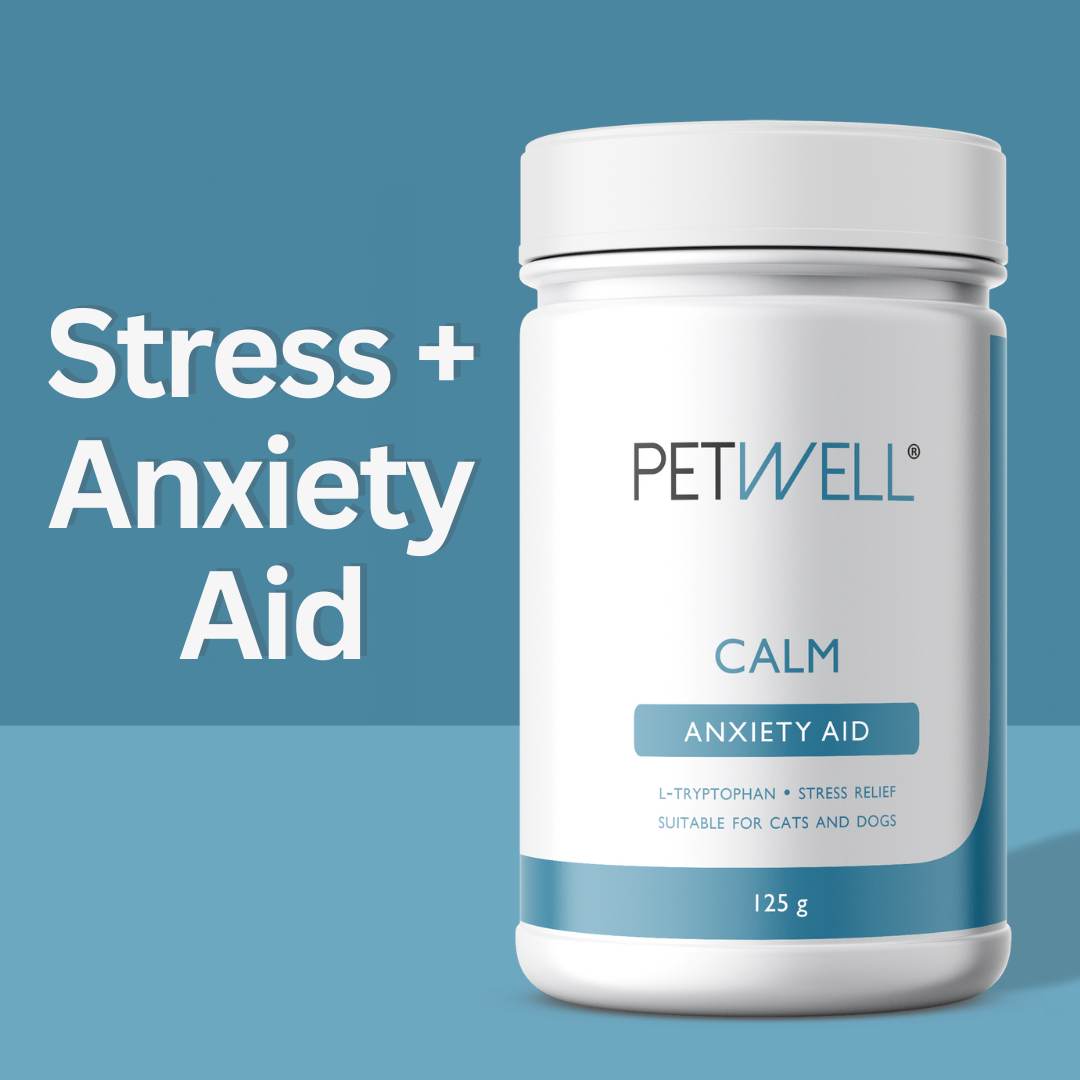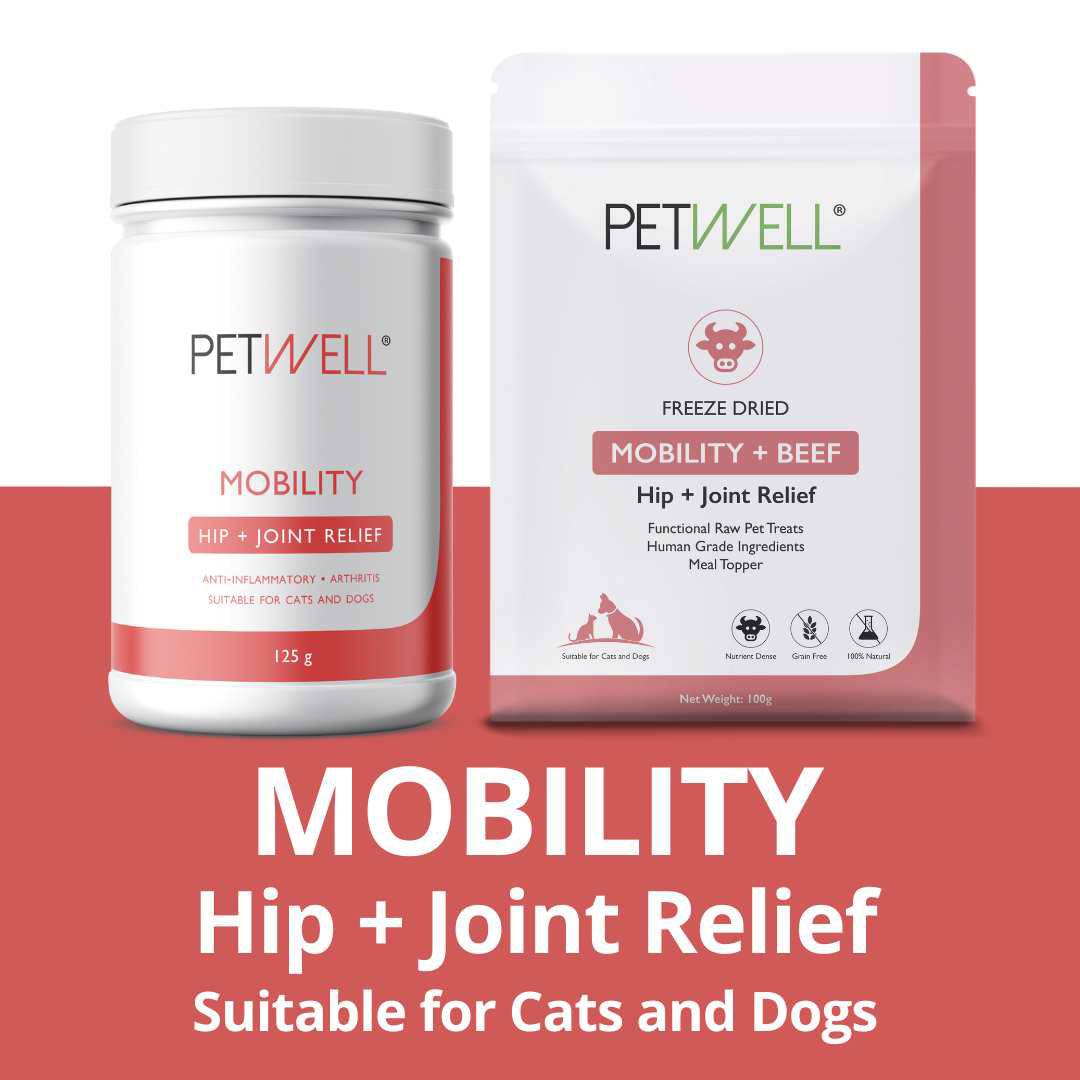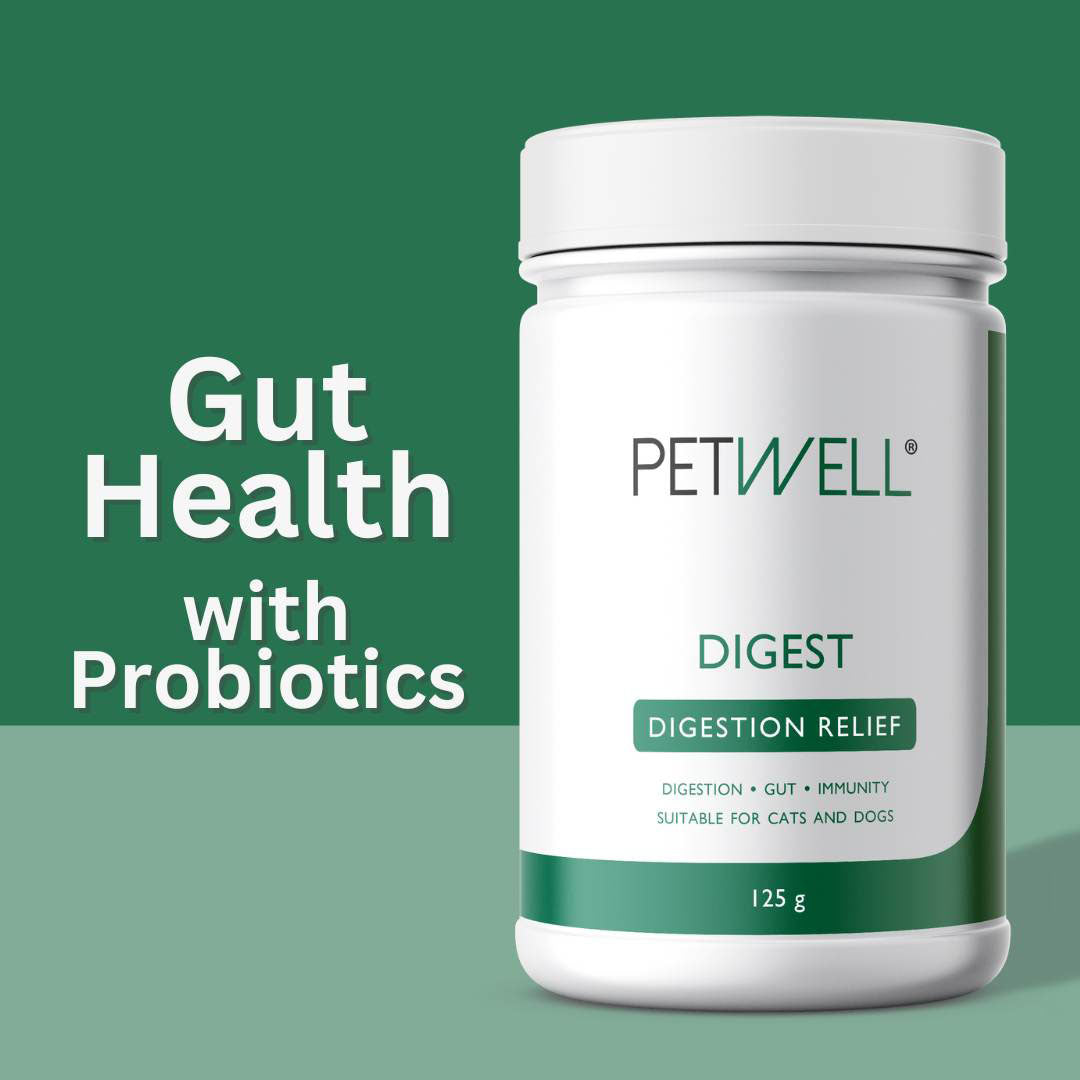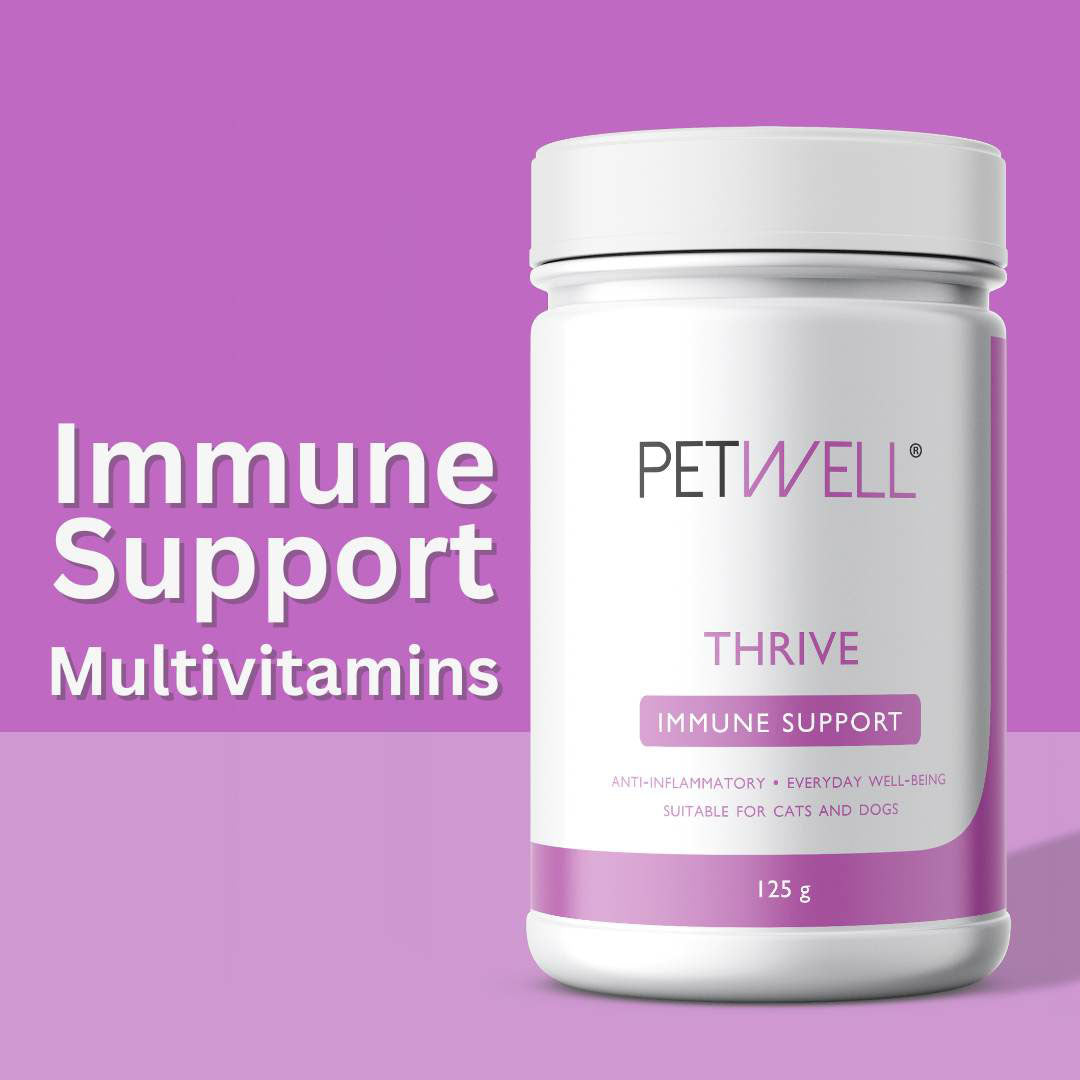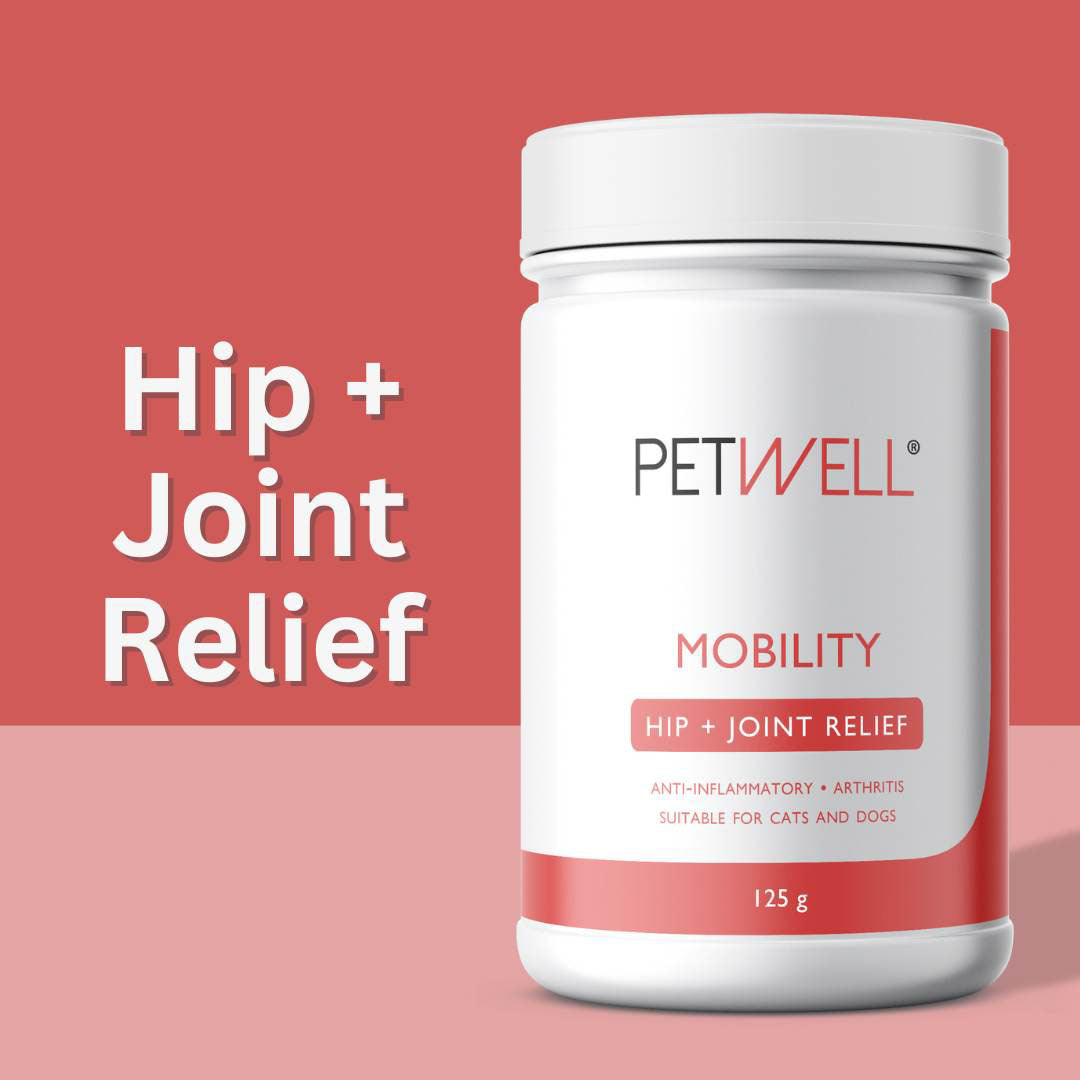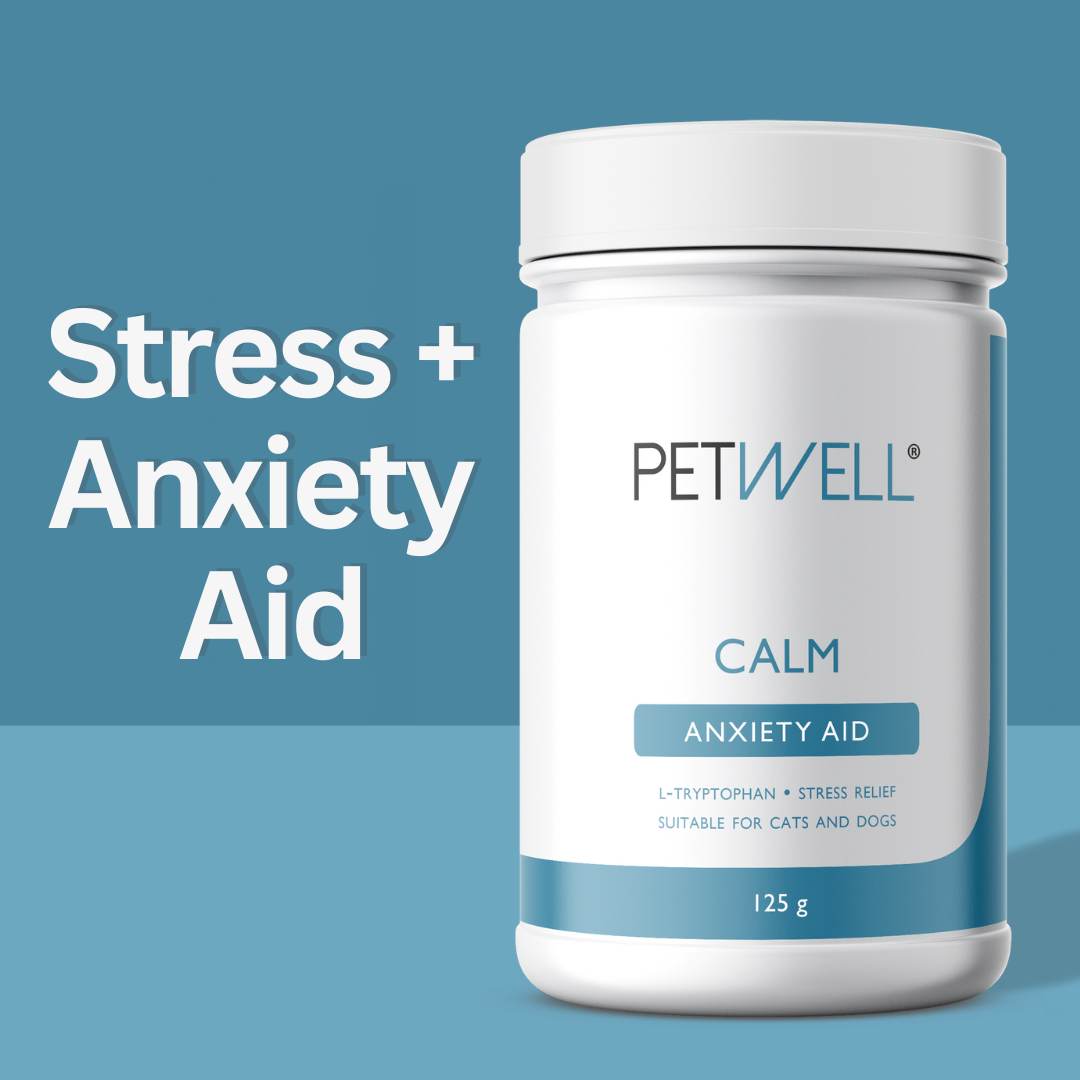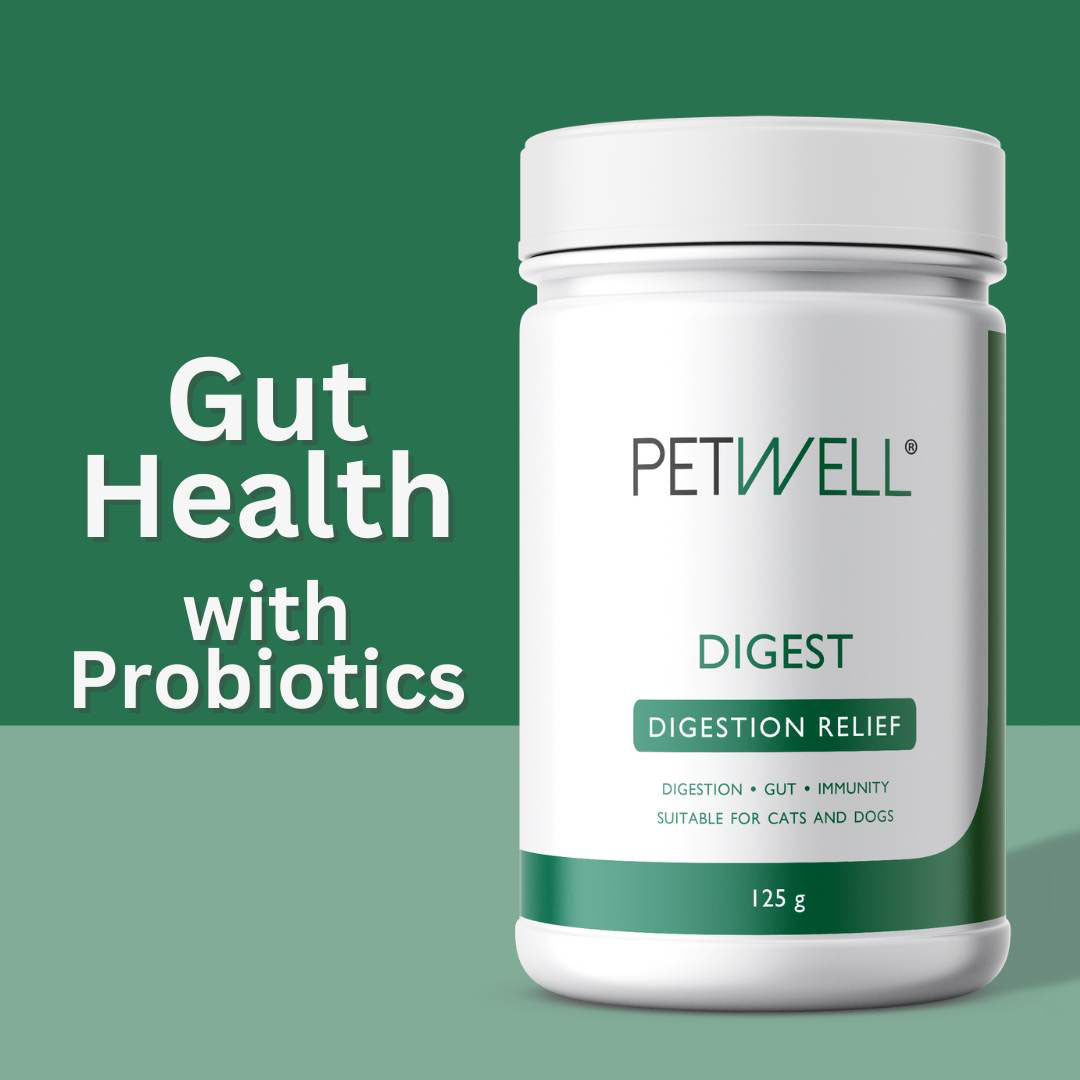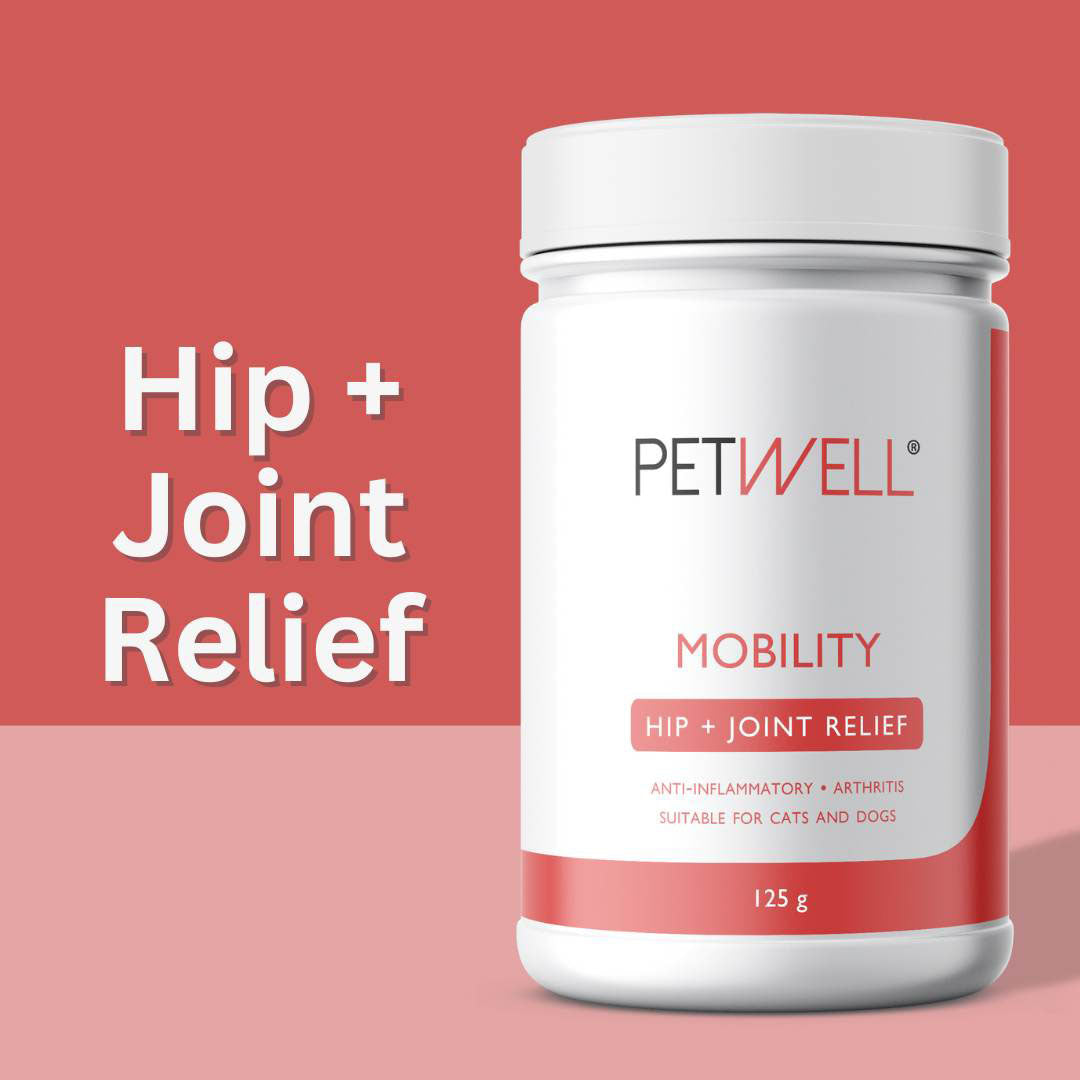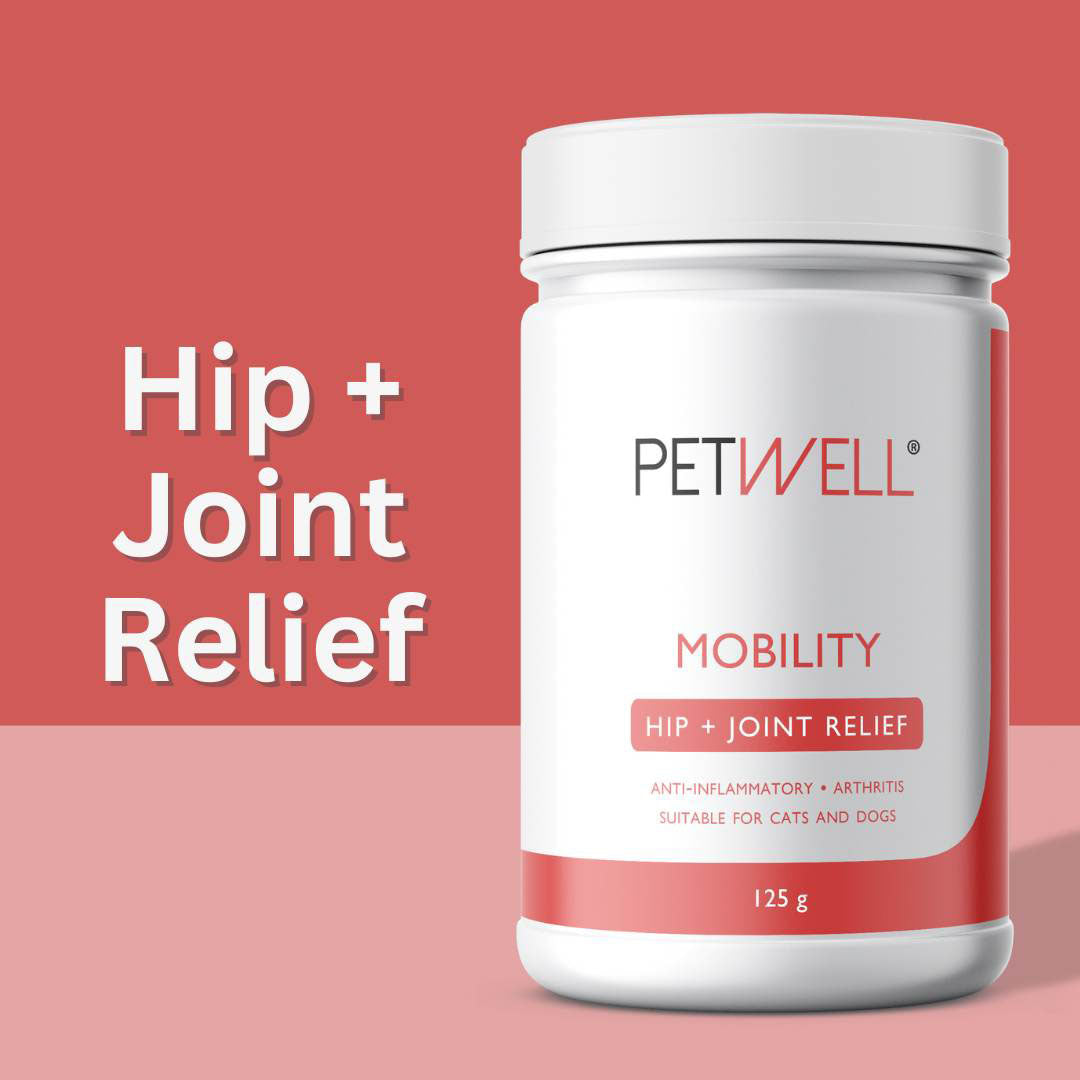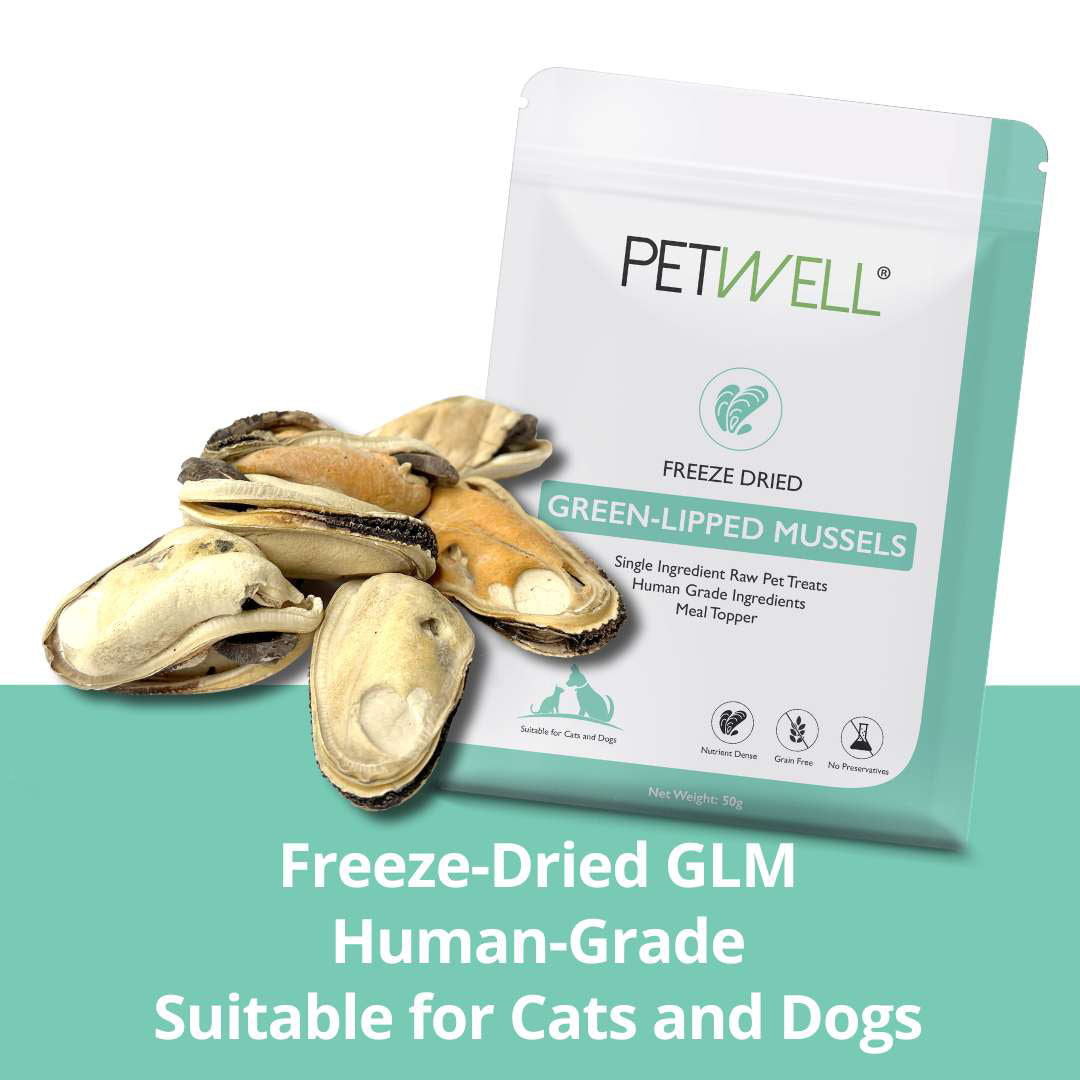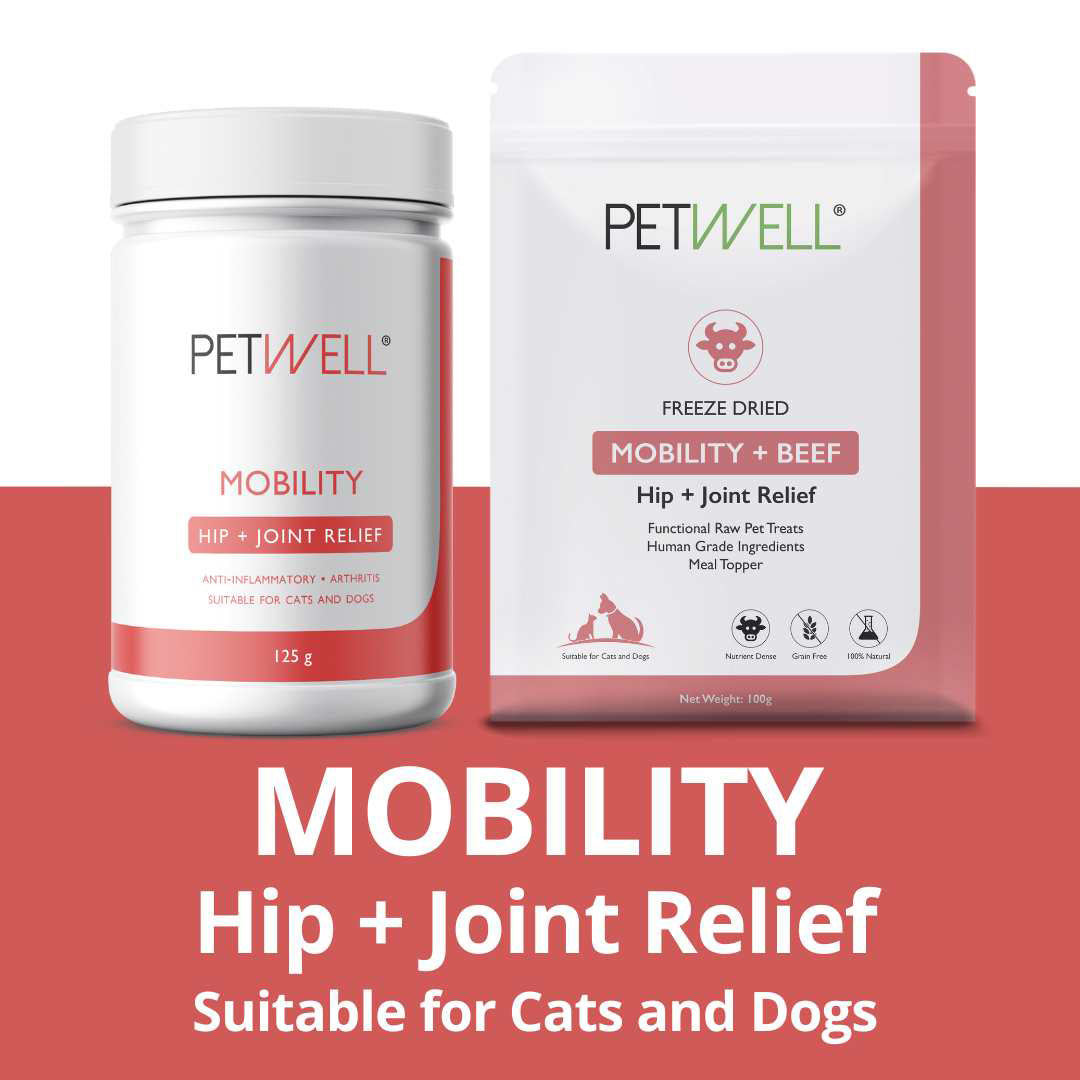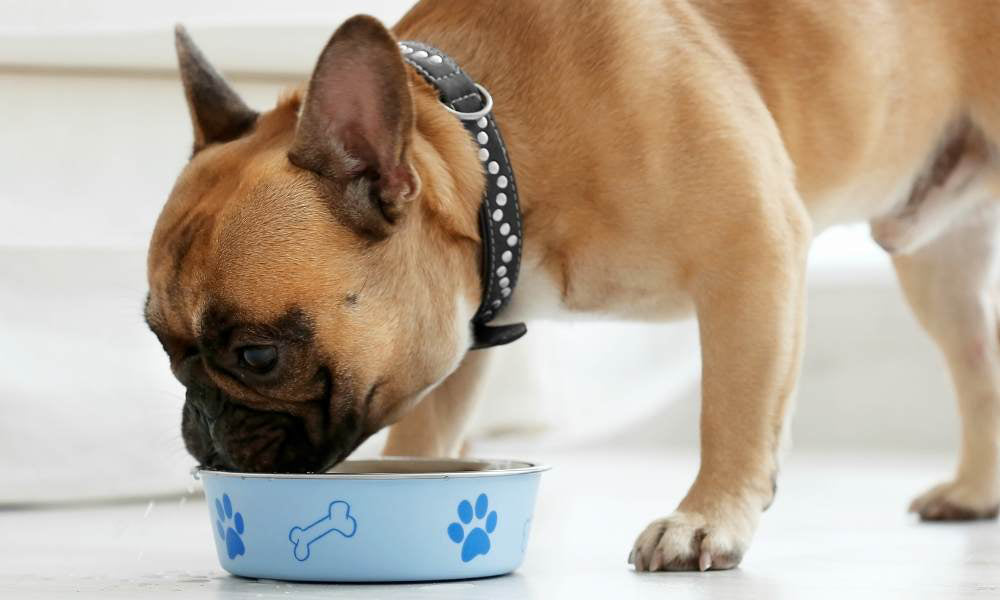Let get into most common dog digestive Issues, what causes them, what symptoms to watch for, and gentle, effective ways to help your dog feel better from the inside out.
When your dog isn’t feeling quite right, it’s often their tummy that’s trying to tell you something. Maybe they’ve gone off their food, had soft stools, or they’re just not as playful as usual. It’s easy to miss the signs—but gut health plays a huge role in your dog’s overall wellbeing.
At PetWell, we believe in supporting the whole dog—naturally if possible. So if your pup has been dealing with digestive issues, or you just want to make sure their gut is in top shape, this guide is for you.
When you build a strong, robust gut—and pair it with a healthy immune system—you’re giving your dog the tools to thrive. A well-supported digestive system can help your dog resist illness, recover faster, and live a longer, more happy life.
Common Digestive Issues in Dogs
Here are the most frequent digestive problems we see in dogs:
- Gastroenteritis – inflammation of the stomach and intestines
- Inflammatory Bowel Disease (IBD) – chronic gut inflammation
- Gastritis – inflammation of the stomach lining
- Pancreatitis – inflammation of the pancreas
- Constipation or Diarrhoea – ongoing or recurring
- Colitis – inflammation of the colon
- Bloat – a serious condition, especially in large breeds
These issues can affect any dog, though some breeds are more prone due to genetics or body structure.
What Causes Digestive Issues in Dogs?
There’s no one-size-fits-all answer. Digestive issues can be triggered by a mix of lifestyle, diet, and health factors:
- Eating things they shouldn’t (hello bin raiders!)
- Poor quality or ultra processed food (sorry kibble manufacturers - not sorry)
- Sudden changes in diet
- Parasites or bacterial infections
- Underlying conditions like liver or kidney disease
- Stress and anxiety
- Antibiotics or medications that disrupt the gut microbiome
- Food allergies or intolerances
Understanding the root cause is key to choosing the right solution.
Signs Your Dog Might Be Struggling with Gut Health

Dogs can’t tell us when they’re uncomfortable, so it’s up to us to notice the signs. Keep an eye out for:
- Vomiting or diarrhoea
- Constipation or bloating
- Sudden change in appetite
- Gurgling tummy sounds
- Gas or unusually smelly stools
- Weight loss
- Changes in stool appearance (mucus, blood, colour)
- Excessive licking, especially around their tummy or paws
- Low energy or irritability
If symptoms are severe or ongoing, always check in with your vet. But for mild issues or preventative care, natural support can work wonders.
Maintaining good gut health through proper nutrition, supplements and a balanced diet is crucial for not only digestive health but also the overall health and resilience of your dog
Natural Ways to Support Gut Health in Dogs
There’s a lot you can do at home to help your dog feel better—naturally:
1. Feed Real, Whole Foods
Choose fresh, high-quality ingredients. Avoid foods with fillers, grains, artificial preservatives, or by-products. Dogs thrive on lean meats, healthy fats, and fibre-rich veggies.
2. Keep Them Hydrated
Water is essential for proper digestion. Add bone broth or water-rich foods if your dog isn’t a big drinker.
3. Stay Active
Regular movement keeps the digestive system working well. Gentle walks and sniff time help regulate bowel movements.
4. Reduce Stress
Stress can wreak havoc on the gut. Maintain routines, create a calm environment, and support anxious dogs with natural aids like PetWell CALM supplement and functional treats.
5. Use a High-Quality Gut Supplement
Not all dog supplements are created equal. Look for multi-strain probiotics, natural anti-inflammatories, and ingredients that actively support gut lining health.
PetWell DIGEST is designed by a qualified animal naturopath and made in Australia with human-grade, all-natural ingredients. It includes:
- Multi-strain probiotics to balance gut flora
- Medicinal mushrooms for prebiotic and immune support
- Marshmallow root and ginger to soothe inflammation
- Spirulina and turmeric for gut lining repair
- Australian goat milk as a gentle, nutrient-rich base
The naturally occurring digestive enzymes in this formula helps nutrient absorption
Whether your dog has occasional tummy upsets or long-term sensitivities, DIGEST is a gentle daily support that actually works.
Read more about Natural Ways to Support Your Dog’s Digestion
Breeds Prone to Digestive Issues
Some breeds are naturally more prone to gut problems:
- German Shepherds – IBD and sensitivities
- Boxers – colitis and loose stools
- Labradors – eat everything and anything
- Mini Schnauzers – pancreatitis risk
- Bulldogs – gas, bloating, and food allergies
If you’ve got one of these breeds, it’s worth being proactive with gut support.
When to See a Vet
You know your dog best. If symptoms are severe, persist longer than a few days, or are accompanied by lethargy, vomiting, or blood in stool, always consult your vet. They can rule out serious conditions and help you create a plan.
Final Thoughts
Your dog’s gut health isn’t just about digestion—it’s the foundation of their happiness, energy, and long-term wellness.
By feeding real food, reducing stress, and supporting their gut with natural supplements like PetWell DIGEST, you’re giving your dog the best chance at a happy, healthy life.
🐾 Because every belly deserves to feel good.
Explore our full range of gut health solutions
Shop PetWell DIGEST → Healthy Gut
Gut supplement product reviews
Reviews for PetWell DIGEST
"I love the Petwell supplements. I use them with my three dogs, as well as with clients. Made with REAL ingredients. No synthetic vitamins! No fillers! Formulated with beneficial ingredients. Digest - is great for any dog that is suffering digestive complaints. Replenishing the microbiome with probiotics, as well as containing anti-inflammatory properties so help soothe the gut." - Jacinta, Pet Nutritionist
"Bane battled a staph infection for over 15 months. He has been on antibiotics for 12 months, which has played havoc on his stomach. To help repair his gut, he has bone broth and DIGEST supplement from PetWell. He has been taking it for 2 weeks, and we have already noticed a positive change in his stool, with less mucus. SO FAR SO GOOD! " - Kasey
"We used Digest on Sanyue when she was sick, vomiting and diarrhoea. Within 24 hours, she was on the improve. The ingredients in digest are incredible! We will keep her on it. Thank you." - Vesper
"DIGEST helped Dali greatly. Dali suffered with bloating and digestion issues that have greatly improved since he has been taking DIGEST daily" - Carolyn
Disclaimer: The entire contents of PetWell emails and website are not to be taken as medical advice. The team at Pet Squad Pty Ltd trading as PetWell encourages you to make your own pet health care decisions based on your research and in partnership with a qualified pet healthcare professional.
Posted By Ayda Hornak - Trained in Canine Phycology and Natural Animal Nutrition Care
